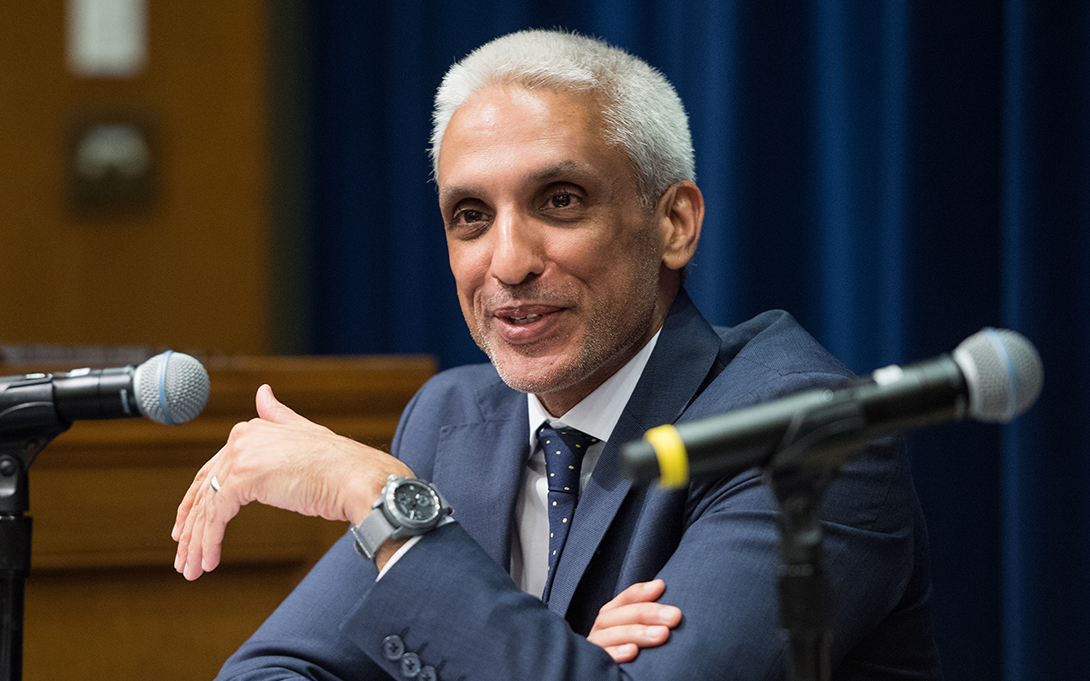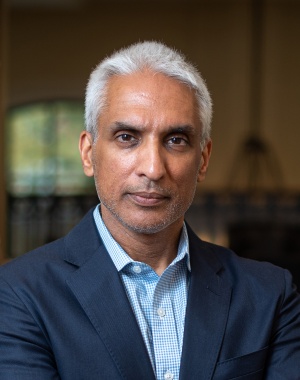
Towsley Policymaker in Residence Javed Ali, who spent his career in counterterrorism, including as a former senior director for counterterrorism at the National Security Council, said the massive and unprecedented security measures taken in advance of the Inauguration were appropriate, but that even with a peaceful transfer of power, the threat of domestic terrorism will remain the number one security concern for the U.S. into the future.
In the aftermath of the January 6 insurrection at the Capitol, Ali told a panel discussion at the New America Forum that combatting domestic terrorism is complex.
“When you look at those events through the frameworks of domestic terrorism, there is no current statute from which to charge domestic terrorism but there is a definition of domestic terrorism. That is another thing that makes some of the tools we have on the foreign terrorism side so different when it comes to domestic terrorism,” he said.
The investigation into the Capitol attacks has uncovered new elements of that threat. He told ABC News, “The large number of individuals with ties to law enforcement or the military already arrested or apparently now under investigation suggests a deeper level of far-right sympathizers in these fields."
And those extremist tendencies can be exacerbated in new ways. He said militias and extremists have organized anti-government demonstrations through social media and the proliferation of misinformation from trusted elected officials that can be found there. Ali told MLive that social media can play a major role in accelerating a person’s path toward extremism, drawing comparisons to ISIS, “the group that managed to weaponize all of that better than any other terrorist group.”
Yet simply “de-platforming” sites and users is not a simple solution. New channels of communication can emerge. So, he told NPR’s Morning Edition, “This is another sort of constant back and forth in the world of tackling disinformation and misinformation.”
However, he added that the misinformation had come from mainstream sources. “Some of those beliefs and ideas and narratives weren't resonant in just the fringe elements of society or the Internet,” but were being espoused by state and federal officials, even up to the president.
Regarding the Inauguration security, he said he wasn’t surprised to see the background checks of National Guard troops. “Based on what happened now almost two weeks ago at the Capitol, this is just another tool that can be used to make sure that people who are going to be in positions of trust for the inauguration or to provide security just have the right background.”
In an interview with ABC Australia, he noted, “I have had similar screenings several times in my career, so I am not concerned about the screening.”
The multiplicity of anti-government activity will make the job harder. “We can’t label only one sort of element and say, ‘If we could only just sort of go after the folks in QAnon, we'd have the right solution.’ This is going to be something that takes a long time to figure out.”
He echoed that sentiment on KNX, saying, “This threat is going to last long past the Inauguration. I think we are at an inflection point in counterterrorism where the far right threat to the homeland is the number one terrorist threat to the U.S. and will remain so for quite some time.”
Understanding the new right-wing extremists, in the way the intelligence community has attempted to understand the mindsets of foreign actors like ISIS and Al-Qaeda, will be key, he wrote in The Cipher Brief.
"The United States faces a serious internal security threat posed by the prospect of additional violence from its own citizens who believe their government no longer represents them, that the November 2020 election results are illegitimate, that their individual liberties and privacy has been trampled upon, or that the social fabric of the country no longer resembles that from which they or previous generations remember. Decoding the beliefs and mindsets that animate violence against fellow citizens will be one of the key security challenges for the incoming Biden Administration, and should spur a new paradigm for domestic counterterrorism."
The original articles and interviews can be seen below:
New America Forum panel (shown on CSPAN), January 14: Extremism and Domestic Terrorism
ABC News, January 15: Nearly a dozen ex-military members among those arrested in connection with Capitol riot
MLive, January 16: Politicians who lied about election fraud gave extremists something to fight for, experts say
NPR Morning Edition, January 18: Security Is On High Alert for Inauguration Week Activities
The Cipher Brief, January 18: Understanding the Jihadist and Extreme-Right Mindsets
ABC Australia, January 19: "Unprecedented" security as FBI vets troops ahead of Biden inauguration
KNX, January 19: Joe Biden's unprecedented (and not in a good way) inauguration (interview starts at 33:48)

